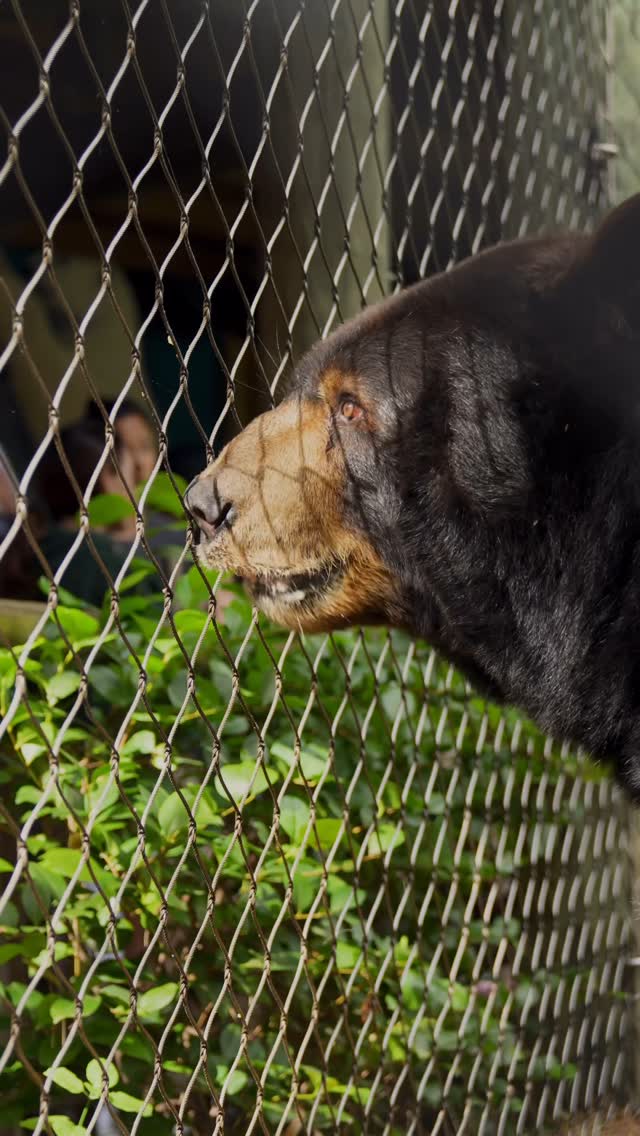- The importance of proper nutrition in wildlife conservation efforts and zoo management.
- The role of nutritionists and commissary staff in maintaining the health of zoo animals.
- Health-conscious snacks for animals during significant events like the Big Game.
- The responsible management and feeding of bears in zoos and wildlife sanctuaries.
- The impact of human activity on wildlife behavior and safety practices to mitigate negative interactions.
Wildlife conservation and zoo management are intricate fields where the well-being of animals is paramount. A crucial element in these fields is the provision of proper nutrition. Proper nutrition can enhance the health, longevity, and quality of life for animals in captivity. The involvement of expertly trained nutritionists and efficient commissary staff is indispensable in realizing these goals. They play pivotal roles in curating meal plans that meet the comprehensive dietary requirements of various species.
Zoos, like all institutions responsible for animal welfare, must navigate challenges related to dietary management. While providing sustenance is a primary task, nutritionists must diligently assess which dietary components are necessary for species-specific health. This responsibility becomes significantly pronounced during events like popular sports gatherings, where the spotlight turns to the animals’ activities and how they are nurtured in such public settings. Healthy snacks may be offered to animals like Lewis and Clark, two bears in the care of a zoo known for its innovative approach to animal nutrition. These snacks are not only a part of daily feeding routines, but are also crafted to promote mental stimulation and mimic natural foraging behavior.
Conserving wildlife within a zoo requires more than adequate feeding; it demands a careful balance of enrichment and physical health maintenance. Special attention is extended to bears whose dietary needs are managed under strict observation. Bears are omnivorous and require diverse dietary inputs to mirror their natural diet. This often involves a mix of nuts, fruit, vegetables, and sometimes fish, all tailored to simulate what they might find in the wild. Bears like Lewis and Clark enjoy these meticulously curated diets thanks again to the skill of nutritionists who strive to maintain their health while keeping them engaged.
When caring for bears, there are occasions where hand-feeding is necessary, typically for medical reasons or during training sessions aimed at mental enrichment. Such practices are delicate and strictly limited to trained professionals. Understanding a bear’s biology, preferences, and temperaments allows for this critical interaction without compromising safety.
Human interaction with wildlife extends beyond the nourishment of zoo animals. Public education about wildlife safety and cohabitation is equally significant. Human activities have a notable impact on wildlife behavior, often leading to increased occurrences of animals, like bears, encroaching into human spaces. To mitigate negative interactions, it’s imperative to adopt effective practices such as securing trash and reducing attractants in areas known to have bear activity. With increasing urbanization, these practices ensure a safer coexistence between humans and wildlife and prevent dangerous interactions that could result in fatal consequences for bears.
Wildlife conservation efforts in zoo settings and natural habitats underline a shared responsibility between humans and animals. The provision of nutrition that prioritizes animal health without compromising safety is a key element. By refining these practices, there’s an opportunity to witness thriving zoo populations that represent our successful conservation endeavors. As people endeavor to gain insight into the fascinating dynamics of animal welfare, it is vital to recognize these efforts’ intricacies and importance. Through continued dedication to the responsible management of wildlife, particularly during engaging public events, we can promote positive interactions and enhance wildlife conservation’s effectiveness.
*****
Source Description
Studies show that it’s impossible to watch the Big Game without BIG snacks. Check out the healthy options that Lewis and Clark are enjoying thanks to our amazing nutritionists and commissary staff.
Please leave feeding bears to the trained professionals. It is sometimes necessary to hand-feed the bears we care for their own welfare needs. Always keep trash secure if you’re in an area with a bear activity.


